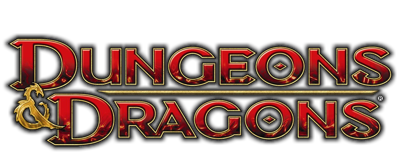The magic of Dungeons & Dragons

March 21, 2020
Have you ever rolled a D20? Maybe to hurl a fireball at an orc or sneak past a slumbering dragon? If you answered “no,” then why the H*ll not?! We’ve got to change that. I’ve got to change that. You might be asking, “What even is a D20?”
It’s a twenty-sided die typically associated with role-playing games, such as the infamous Dungeons and Dragons, also known as D&D. Players frequently roll the dice to determine the outcome of events in the game, from persuading the guards to free you from your dungeon cell to firing an arrow at an unsuspecting elven bandit. D&D was released in 1974 and quickly rose to popularity, becoming a staple of nerdom.
The game is inherently nerdy, but that doesn’t mean you have to be a nerd to play (although I think everybody should be a “nerd”). There are elves, dwarves, orcs, dragons, wizards, goblins, and all manners of fantasy staples, but this is actually why I think the game is perfect for everyone. D&D can be as nerdy as you like; some players enjoy adopting a fantastical accent and diction of medieval history, but some prefer to forego extra fluff and just slash through some orcs and save humble villages. Your character can be an occult warlock who worships a powerful demon in return for magical powers, or you can be a humble farmer who stumbles across a band of goblins and rescues a traveling merchant. Dungeons and Dragons really are what you and your friends make of it, so you can mold it into whatever you find fun and interesting!
Because of the malleable quality of the game, D&D is a great exercise in group improv and allows imaginations to run free! Today’s school curriculum emphasizes STEM skills, and for good reason, but we can’t forget the importance of imagination. We’re all used to learning the periodic table and solving with sine and cosine, but D&D gives a creative environment to flex the imagination that we can easily lose touch with after childhood.
Maybe you paint from time to time to keep in touch with the right side of your brain, but I find D&D to be more fun because it’s a big group game, making for a great social hobby. Not only does D&D let us rekindle our deep imaginations, but it can also strengthen those very same STEM skills with creative problem-solving. Of course, you can hack right through the angry bandit who stole your gold, but maybe you can persuade him to hand it over and turn himself in, or perhaps you summon a magical illusion of a bear and scare him off. Whether you’re itching to play, or you want to regale me with your bravest stories of dragon slaying, please feel free to email me about anything Dungeons and Dragons.

